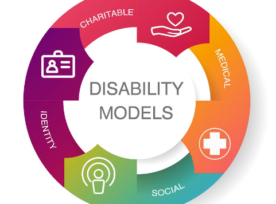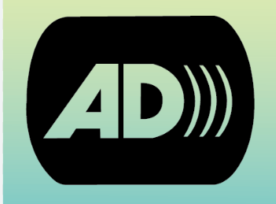Welcome to our new series where we embark on a journey to deepen our understanding of disabilities and their associated barriers. In today’s rapidly evolving world, it is essential to foster an inclusive environment that respects and accommodates the needs of all individuals, regardless of their abilities. By shedding light on the categories and characteristics […]
Gulen Yilmaz
Gulen is a passionate and detail-oriented Software Digital Web and Native Accessibility Specialist, recognized for delivering high-quality, inclusive digital experiences. With deep expertise in Section 508 and WCAG compliance, she ensures that both web and native applications (iOS, Android, and Tablet) meet rigorous accessibility standards. Over the past four years as part of the Perficient Detroit Business Unit, Gulen has contributed to the success of cross-functional teams through her strong communication, problem-solving, and testing skills. Her favorite part of the job is collaborating with clients to create inclusive products, ensuring no one is left out, regardless of ability.
Connect with Gulen
Blogs from this Author
Theoretical Models of Disabilities: Part 7 –Understanding the Charity Model of disability.
In our journey towards fostering inclusivity and understanding, it is essential to explore various models of disability. One such model that has drawn both criticism and debate is the Charity Model of Disability. In this blog post, we will delve into what the Charity Model entails, its historical context, and the implications it has on […]
Theoretical Models Part 6 –Understanding the Social Identity and Cultural Affirmation Model
In the realm of disability studies, the Social Identity and Cultural Affirmation Model of Disability has gained recognition as a powerful framework that acknowledges the significance of social and cultural factors in shaping the experiences of individuals with disabilities. This model recognizes disability as a social construct influenced by identity, culture, and societal attitudes. In […]
Theoretical Models of Disabilities: Part 5 –Understanding the Functional Solution Model
In recent years, society has made significant progress in understanding disability and the importance of inclusivity. One model that has gained attention is the Functional Solution Model of Disability. This paradigm shift focuses on creating an inclusive society by removing barriers and addressing the functional limitations faced by individuals. In this article, we will delve […]
Theoretical Models of Disabilities: Part 4 – Understanding the Economic Model
Welcome to the fourth installment of our series on theoretical models of disabilities. In this article, we will delve into the economic model of disability, which provides valuable insights into the socio-economic factors that influence the lives of individuals with disabilities. By exploring this model, we can gain a deeper understanding of the economic challenges […]
Theoretical Models of Disabilities: Part 3 – Understanding the Biopsychosocial Model
In our previous blog post, we explored the medical model and social of disabilities and their limitations in fully capturing the complex nature of the disability. Today, we delve into another prominent theoretical framework called the biopsychosocial model. Developed by George L. Engel, this holistic approach recognizes that disability is not solely determined by medical […]
Theoretical Models of Disabilities: Part 2 – Understanding the Social Model
Welcome back to the second part of our blog series on theoretical models of disabilities. In this installment, we will continue exploring the social model of disability, delving deeper into its implications, practical applications, and its potential to reshape our understanding of disability. By embracing this model, we can work towards a more inclusive society […]
Theoretical Models of Disabilities: Part 1 – Understanding the Medical Model
In the realm of disability studies, the medical model has played a significant role in shaping the understanding and treatment of disabilities. The medical model of disability views disability primarily as an individual’s physical or mental impairment that requires medical intervention. This approach focuses on diagnosing and treating the condition to enable individuals to function […]
Exploring Theoretical Models of Disability: Understanding the Different Perspectives
Disability is a multifaceted concept that has been studied and interpreted through various theoretical models. These models provide frameworks for understanding disability, its causes, and its implications in society. By delving into each theoretical disability type, we can gain valuable insights into the diverse ways disability is perceived and addressed. In this blog post, we […]
Bridging the Gap: Empowering Individuals with Disabilities through Assistive Technologies
In a world that often revolves around the concept of “ability,” individuals with disabilities face unique challenges. These challenges can vary greatly depending on the nature of the disability, but what remains constant is the importance of finding innovative ways to empower individuals and create a more inclusive society. This is where assistive technologies play […]
Audio Description: Making Visual Content Accessible for All
In today’s world, accessibility has become an essential aspect of inclusive design. As we strive to make information and entertainment accessible to everyone, audio description has emerged as a vital tool for individuals with visual impairments. This blog post will explore the concept of audio description, its correct markup, and the disabilities that benefit from […]
The Power of Captions: Enhancing Accessibility for Individuals with Hearing Disabilities
In today’s digital era, accessibility plays a pivotal role in ensuring equal opportunities for everyone. While web designers and developers have made significant strides in creating inclusive user experiences, it’s important to explore and promote the use of captions with semantic markup as a means to enhance accessibility for individuals with hearing impairments. Captions not […]











